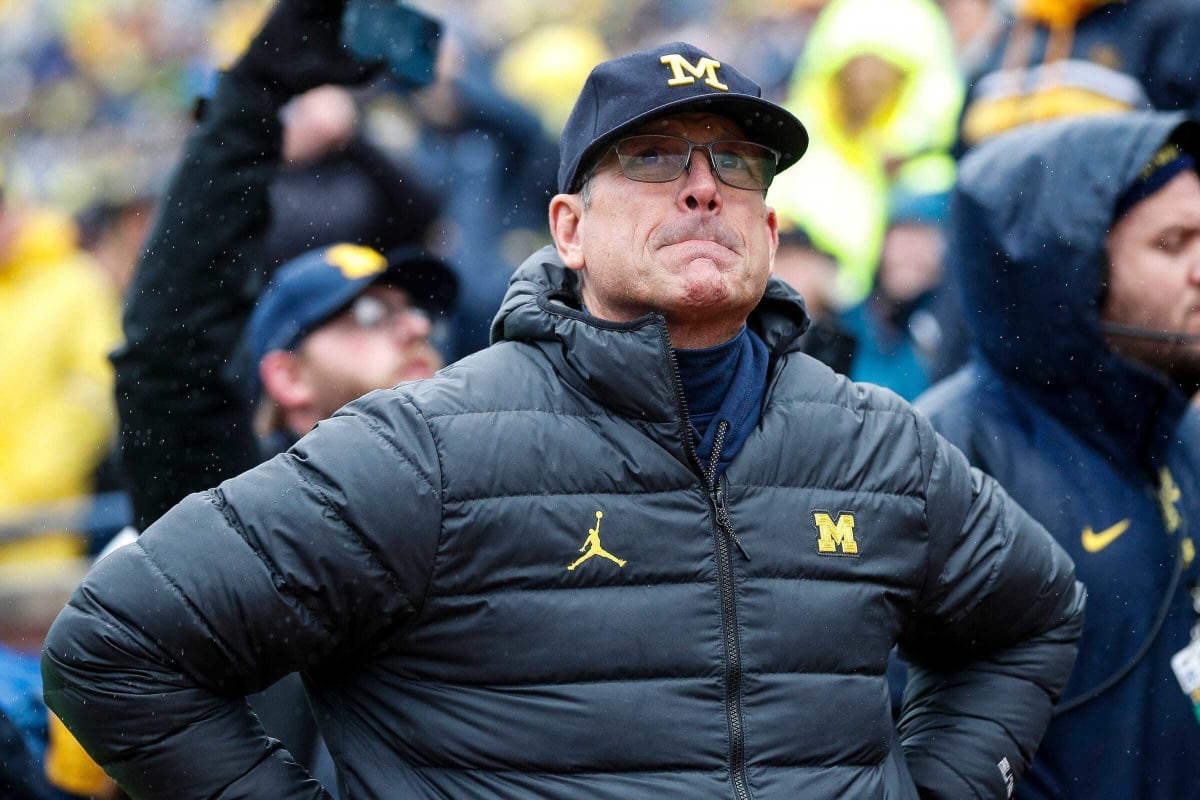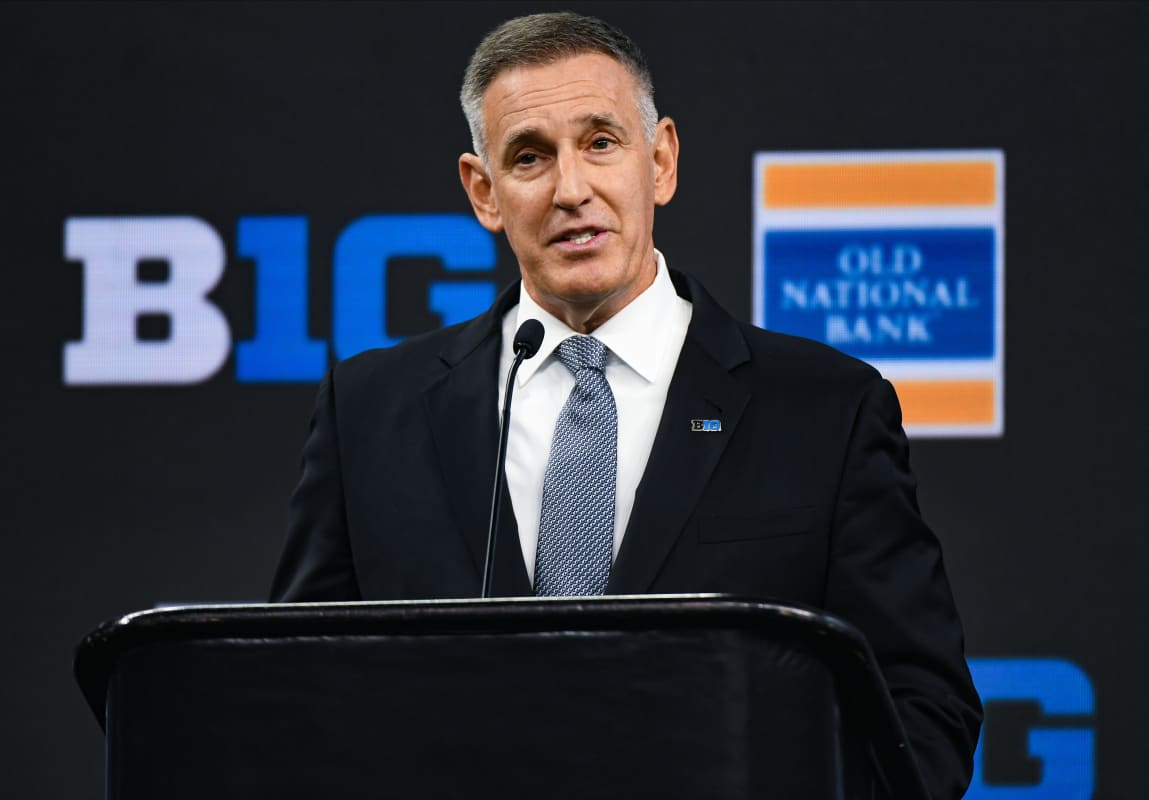Big Ten coaches have been pushing commissioner Tony Petitti to come down hard on Michigan coach Jim Harbaugh for his program’s alleged sign-stealing operation—as one coach told ESPN: “What are we waiting on? We know what happened.” This raises the question: If the NCAA enforcement staff is still gathering information, how do other coaches know what happened?
Coaches have good reasons to be concerned and suspicious. But a conference commissioner should not suspend somebody before an investigation is finished because other coaches are mad. Anybody with a basic sense of fairness should understand that.

Junfu Han/USA TODAY NETWORK
Harbaugh has explicitly denied having any knowledge of the activities in question. He presumably told his bosses and NCAA investigators the same. If he is proved to have lied—after already serving a three-game suspension for misleading investigators—then there should be no need for the Big Ten to discipline him, because Michigan should fire him.
To date, however, there is no publicly available evidence that indicates Harbaugh knew Michigan was breaking rules. The truth is we still do not know exactly what happened, why it happened, who knew or how much it helped.
We know that Michigan staffer Connor Stalions bought tickets to games featuring the Wolverines’ upcoming opponents, and that he did so to record video of their signs. But what happened before and after? Was he told to do it? How much information did he share with coaches and how valuable was it?
The desire for answers is totally justified. The urgency to act is based on flimsy rationalizations. Michigan State athletic director Alan Haller reportedly worried his players would be injured because Michigan players knew where they would be going. If stealing signs puts players’ health at risk, then how come it is legal to do it during games? Are we supposed to believe that a game built around repeated violent collisions is acceptably safe unless one team has advanced warning that the other team is calling a pass play?
Haller also complained the Big Ten moved much quicker a year ago, when Michigan State had to suspend players who attacked Michigan ones in the tunnel after the rivals played. The problem with that argument is twofold. One: Michigan State suspended its players last year. If Haller felt the Big Ten unfairly forced him to do it, then he should have said so then. Two: When there was clear evidence against specific people who were in the tunnel, they were punished. That has already happened at Michigan, which suspended Stalions and then accepted his resignation.
Let’s be honest here: Big Ten coaches want Harbaugh suspended because they don’t trust him, don’t like him and don’t want to see him win the league again. I’m not saying they are right or wrong to feel that way, just that they do. They have a right to those feelings. They also have a right to question whether Michigan’s recent success was fueled by illegal sign-stealing. It’s a fair question, and that’s why there is an investigation.

Robert Goddin/USA TODAY Sports
Petitti is in his first year on the job—and his first as a college sports administrator. Now he has more experienced coaches and athletic directors angrily telling him how things should work. It would be easy to see them as wise leaders providing counsel in a crisis, but they are really just looking out for their own interests.
Petitti came to the Big Ten from Major League Baseball. He should remember that MLB took two months to investigate the Astros’ sign-stealing charges, and acted after it confirmed that manager A.J. Hinch was aware of the scheme and did not stop it. The Michigan story broke less than three weeks ago, and to date, it’s not clear that anybody other than Stalions knew what he was doing, or should have.
If “compile all the evidence and then reach a fair decision” is a controversial statement, then the Big Ten is in a really sorry place. If Petitti does not have the political savvy to hold the mob at bay until he is ready to make a decision, then he does not belong in the job.
He should ask outraged coaches and athletic directors a simple question: If somebody accused them of wrongdoing, and Jim Harbaugh urged him to punish them, should he do it? I think we all know what their answer would be—and should be.







